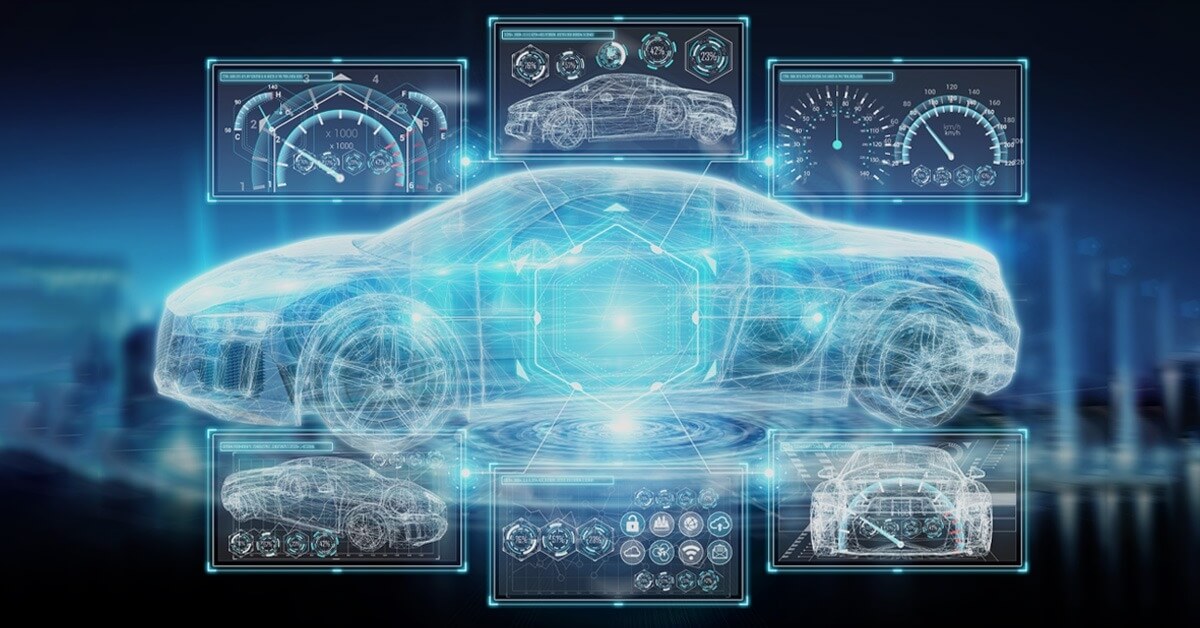UAE Auto Industry Future: Insights & Trends
Navigating the Road Ahead: Key Trends in the UAE Auto Market

Find your tyre
READ THE DIMENSIONS OF TYRES

The automobile industry in the United Arab Emirates (UAE) is a significant sector that contributes notably to the national economy. Characterized by high disposable incomes and a penchant for luxury and cutting-edge technology, the UAE's market is diverse, offering a wide range of vehicles, from ultra-luxury sports cars and opulent SUVs to affordable, energy-efficient models. The industry not only caters to local demands but also serves a broader Middle Eastern market through its well-established trade networks.
Metro areas such as Dubai and Abu Dhabi are global showcases for the latest in automotive design and innovation, often featuring high-profile launches and motor shows that attract enthusiasts and industry professionals from around the world. The UAE's strategic location between the East and West, coupled with robust infrastructure, has transformed it into a pivotal hub for the automotive trade.
The demand in the UAE's auto market has traditionally been driven by factors such as fuel subsidies, which have kept operating costs low, and a cultural affinity for automobile ownership as a status symbol. However, the industry is currently witnessing a paradigm shift influenced by global trends, evolving consumer patterns, and an increased focus on sustainability. As the nation aims to diversify its economy away from oil dependence, its automotive sector also reflects this transition with strategic investments in technology and infrastructure to spur long-term growth.
Current Trends Shaping the UAE Auto Market
The automobile industry in the UAE is currently shaped by several trends, reflecting both regional characteristics and global shifts affecting automotive markets. With a high GDP per capita, the population of the UAE shows an affinity for luxury and high-performance vehicles, which continues to drive a significant portion of auto sales. This trend is bolstered by the prevalence of favourable finance and leasing options, making vehicle acquisition more accessible to a broader base of consumers.
As global environmental concerns grow, there is an increasing demand for eco-friendly and fuel-efficient vehicles in the UAE. The market is slowly but steadily adapting to this shift, with hybrid and electric vehicles (EVs) garnering attention from both consumers and businesses looking to minimize their carbon footprint. Furthermore, the country's youth, who are tech-savvy and environmentally conscious, are poised to propel this market segment.
Another factor influencing the market is the tourism industry. With the UAE being a major travel and business destination, there is a constant demand for rental and fleet vehicles, thus providing impetus to the auto industry. The digitization of the retail experience, including online sales platforms and virtual showrooms, is becoming increasingly prevalent, revolutionizing the traditional car-buying process. Lastly, the impact of the COVID-19 pandemic has propagated a preference for personal mobility over public transportation, creating a short-term spike in vehicle ownership as residents seek safer travel options. These trends collectively suggest dynamic prospects for the automobile industry in the UAE, continually being reshaped by consumer preferences, technological advancements, and socio-economic factors.
Technological Innovations Driving the Industry
Technological advancements are at the forefront of the transformation occurring within the UAE automobile industry. The integration of Artificial Intelligence (AI), the Internet of Things (IoT), and advanced materials are reshaping how vehicles are designed, manufactured, and operated in the country. AI is being leveraged to enhance vehicle connectivity and autonomy, providing a more personalized and safer driving experience. Through AI algorithms, predictive maintenance is becoming more common, with vehicles being able to anticipate service needs before a breakdown occurs.
IoT connectivity has enabled cars to become more than just a means of transportation; they are now platforms for drivers and passengers to stay connected with the digital world. This includes real-time traffic updates, remote diagnostics, and in-car infotainment systems that sync seamlessly with personal devices. The UAE's adoption of 5G networks is expected to accelerate these capabilities, providing higher data transfer speeds and reduced latency, thereby offering more reliable vehicle-to-everything (V2X) communication.
Furthermore, lightweight and sustainable materials are being incorporated into vehicle production to improve fuel efficiency and reduce environmental impact. These materials, coupled with advanced manufacturing techniques such as 3D printing, are enabling carmakers in the UAE to produce parts quickly and more cost-effectively, while also opening doors to more customized vehicle designs.
As the country moves towards greener solutions, research and development into battery technology and alternative fuels are also being prioritized. The adoption of these innovations places the UAE's automobile industry at the cutting edge, making it poised for a future of smarter, cleaner, and more efficient vehicles.
Government Initiatives and Regulatory Landscape
The automobile industry in the United Arab Emirates (UAE) has been significantly influenced by proactive government initiatives and a forward-thinking regulatory landscape. The UAE government has consistently demonstrated its commitment to fostering a thriving auto sector through various policies and incentives aimed at attracting global automakers and boosting local market competitiveness.
As part of its broader economic diversification efforts, the government has instituted a favourable tax environment with minimal indirect taxes that has been crucial in stimulating the growth of the automobile market. Customs tariffs have also been structured in a way that favours the importation of vehicles and auto parts, thereby ensuring a wide range of products for consumers and maintaining a vibrant trade ecosystem.
Regulatory measures have been put in place to encourage sustainable practices within the industry. Embracing the global push towards reducing carbon emissions, UAE authorities have introduced standards and guidelines to limit the environmental impact of automotive operation. These regulations also support the adoption of green technologies in vehicle manufacturing.
To further solidify the UAE's position as a regional automotive hub, the government has launched initiatives designed to draw investment in research and development (R&D) within the auto sector. Special zones such as Dubai Industrial Park offer tailored services and infrastructure to support automotive businesses, fostering innovation and cutting-edge development.
In conjunction with these economic measures, the UAE continues to enhance road safety and vehicle quality through stringent testing and certification processes. This not only elevates the industry standards but also reassures consumers and stakeholders about the reliability and safety of vehicles available in the UAE market.
Electric and Autonomous Vehicles in the UAE
The United Arab Emirates has been investing significantly in the future of transportation, with electric and autonomous vehicles being the cornerstone of its strategic initiatives. Embracing sustainability and innovation, the UAE is actively promoting the adoption of electric vehicles (EVs) to achieve a greener economy and reduce carbon emissions. Various incentives such as free parking, free charging at numerous stations, and exemptions from car registration and renewal fees have been introduced to encourage consumers to switch to electric cars.
In tandem with the push for EVs, the realm of autonomous vehicles (AVs) is also seeing considerable interest in the UAE. The government’s aim to transform at least 25% of total transportation in Dubai to autonomous mode by 2030 underlines its commitment to AV technology. This objective is supported by comprehensive testing frameworks and partnerships with leading technology companies to deploy AVs across the emirate.
Currently, the UAE is witnessing pilot projects and deployments of semi-autonomous and fully autonomous vehicles in controlled environments, setting the stage for broader adoption. Moreover, investments in smart infrastructure and advanced traffic management systems are paving the way for seamless integration of AVs into the urban landscape.
Looking ahead, the UAE is poised to become a regional hub for electric and autonomous vehicle technologies, with a progressive regulatory vision and substantial investment indicating a robust growth trajectory. Consumers and businesses alike are increasingly interested in the benefits offered by EVs and AVs, such as increased efficiency, reduced environmental impact, and the promise of a futuristic, smart mobility landscape.
Future Projections and Growth Opportunities
The future of the UAE automobile industry appears to be bright, with several factors indicating robust growth opportunities. As the nation continues to invest in diversifying its economy away from oil dependency, the automotive sector stands to be a significant beneficiary. Emerging trends in the global market, such as the rise of electric vehicles (EVs), are finding strong government support in the UAE, signalling a shift towards sustainable transportation.
Investments in infrastructure are already paving the way for increased adoption of EVs, with charging stations becoming more widespread. This, combined with incentives for electric vehicle purchases, is projected to boost the electric segment of the market substantially. The UAE’s strategic location and robust logistics framework also position it well as a regional hub for the export and re-export of vehicles.
In addition to electric vehicles, autonomous driving technology is also on the rise, and the UAE is positioning itself to be at the forefront of this innovation. With the government's support for smart city initiatives and the integration of advanced technologies into urban planning, autonomous vehicles are set to become an integral aspect of the nation’s transport infrastructure.
Given these technological advancements and the support from the government, industry experts project a compound annual growth rate (CAGR) for the UAE automobile market that is above the global average. This suggests a dynamic future for the industry, with opportunities for both domestic players and international automakers looking to enter or expand within the market.
The outlook for the UAE automobile industry is promising, driven by advancements in electric and autonomous vehicle technologies, favorable government policies, and significant investment in related infrastructure, paving the way for sustained growth and innovation in the coming years.
